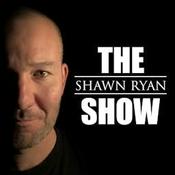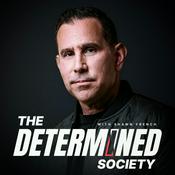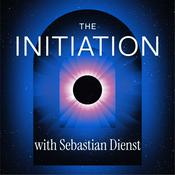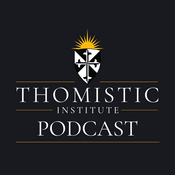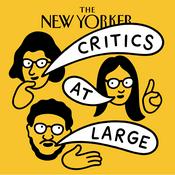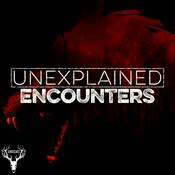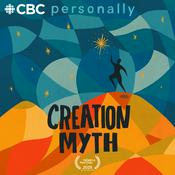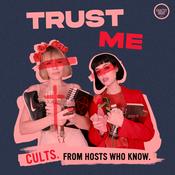636 episodes
- When society, financial systems and human beings fall short, how can we repair the damage? Tom Sutcliffe hosts Radio 4's discussion programme which starts the week, exploring the social, moral and political contradictions of the world we face today, with US novelist George Saunders, Turkish writer Ece Temulkuran and investigative journalist Oliver Bullough,
The Booker Prize winning novelist, George Saunders new book Vigil deals with the moral ambivalence of a greedy oil executive; the death bed reckoning of a man who resists facing his life and legacy.
The Turkish writer, Ece Temulkuran's new book Nation of Strangers: Rebuilding a Home in the 21st Century explores the rising global displacement of people who will need to forge stronger connections amid political and social upheaval.
In an investigation of money laundering, Oliver Bullough's Everybody Loves Our Dollars sets out the scale of the problem and why we are failing to tackle the global systems that allow illicit money to move freely using sites as varied as Bicester Shopping Village in Oxfordshire and a casino in Vancouver, Canada.
Producer: Ruth Watts - Games are supposed to be fun — so what happens when the logic of games, points and competition escapes the playground and starts reshaping everyday life? The novelist and games-writer Naomi Alderman and her guests explore how the joy of play collides with the pressures of a gamified society.
Philosopher C Thi Nguyen introduces The Score, his examination of how ranking systems and numerical targets can both sharpen and warp our values, revealing how life becomes less playful when everything is reduced to points.
Journalist and critic Keza MacDonald discusses Super Nintendo, her cultural history of the iconic console, tracing how its games, aesthetics and innovations transformed the medium and helped define what play means for generations of players.
The Financial Times' commentator Stephen Bush examines the growing role of games and game like incentives in public life, exploring how the techniques of play — from reward structures to competitive framing — are reshaping political behaviour and communication.
Producer: Katy Hickman - A lawyer, artist and curator discuss different examples of censorship and self censorship in Radio 4's weekly discussion of ideas to kick off the week. Tom Sutcliffe's guests are:
Ai Weiwei: a major name in contemporary art and for decades a leading voice for freedom of expression in his native China – and the wider world. In 2011 he was detained for eighty-one days in a secret location, unable to communicate with the outside world. His new book, On Censorship moves from authoritarian regimes to the pervasive influence of corporate power, social media and dominant interest groups in democracies.
Baroness Helena Kennedy has written the introduction to collected writings of Anna Politkovskaya, the Russian journalist who was murdered outside her home in Moscow twenty years ago. With continued attacks in Russia on press freedom, the way she spoke truth to power remains inspirational for Baroness Kennedy.
The figure of the Samurai is often associated with ideas about discipline, sacrifice and war but a new exhibition at the British Museum (on until May 4th) looks at the way this warrior class became consumers and patrons of culture. Rosina Buckland has co-curated the show.
Producer: Ruth Watts - Adam Rutherford and guests discuss intelligence, genetics and the nature of reality. How are scientific advances in AI, cognitive science and genetics changing our understanding of the material world and what it means to be human?
Adrian Woolfson argues that we must transform biology into programmable engineering material. To do this, we must decode the generative grammar of DNA, the language of life itself, so we might create or change genomes – possibly including our own. In his book, 'On the Future of Species Authoring Life by Means of Artificial Biological Intelligence' he imagines a future where - we grow houses rather than build them; smartphones are living; clothing has opinions; all human knowledge fits into a speck of DNA; disease is a thing of the past; and the human lifespan is dramatically extended.
What can we learn by combining cognitive science and artificial intelligence? In The Emergent Mind, a new book co-authored by Gaurav Suri, looks at how a data-driven neural network can create thoughts, emotions, and ideas – a mind – in both humans and machines alike. He argues that if we want to understand intelligence then we should look at the concept of neural network, the framework inspired by the human brain that lies behind Artificial Intelligence. He explains a new idea 'emergence' - and what it may mean.
Joanna Kavenna's latest novel, Seven is a satire about a game without rules. It encompasses encounters with philosophy, artificial intelligence and dreams, poetry and the natural world. The plot travels through time and space, in a world without boundaries and where nothing can be pinned down and everything is in flux. It raises questions about how much we can truly know about reality.
Producer: Ruth Watts - If trust in politicians is broken and the political system isn't delivering, then how might we go about fixing things? Can we revive faith in democratic government by doing things differently?
The political scientist Hélène Landemore argues that electoral politics is broken and that the answer lies in doing away with career politicians. She imagines dismantling a system that is biased in favour of the special interests of big money, propelled by the constant quest for re-election and the jaded proffering empty promises. In her new book, Politics without Politicians she posits that, among other solutions, we need Athenian style participation through mechanisms such as civic lotteries. More people need to be involved first hand in decision making if everyone is to feel heard.
Author and broadcaster Phil Tinline explains why he thinks politicians need to start thinking and talking about power again if they are to stand a chance of delivering on their promises. He argues that if nothing ever changes, then we need to understand who has too much power and who has too little and be prepared to do something about it.
Michael Gove is the editor of The Spectator and a member of the House of Lords. He has extensive experience of government, serving in cabinet under four prime ministers between 2010 and 2024. It is widely acknowledged among, both his admirers and his critics, that he rapidly got to grips with his department's brief and knew exactly how to drive an agenda for change. He reflects on his experiences.
Producer: Ruth Watts
More Society & Culture podcasts
Trending Society & Culture podcasts
About Start the Week
Weekly discussion programme, setting the cultural agenda every Monday
Podcast websiteListen to Start the Week, The Watch Floor with Sarah Adams and many other podcasts from around the world with the radio.net app

Get the free radio.net app
- Stations and podcasts to bookmark
- Stream via Wi-Fi or Bluetooth
- Supports Carplay & Android Auto
- Many other app features
Get the free radio.net app
- Stations and podcasts to bookmark
- Stream via Wi-Fi or Bluetooth
- Supports Carplay & Android Auto
- Many other app features


Start the Week
Scan code,
download the app,
start listening.
download the app,
start listening.




